SSRgenotyper: A new tool to digitally genotype simple sequence repeats
Scienmag
FEBRUARY 4, 2021
SSRgenotyper: A simple sequence repeat genotyping application for whole-genome resequencing and reduced representational sequencing projects.
This site uses cookies to improve your experience. To help us insure we adhere to various privacy regulations, please select your country/region of residence. If you do not select a country, we will assume you are from the United States. Select your Cookie Settings or view our Privacy Policy and Terms of Use.
Cookies and similar technologies are used on this website for proper function of the website, for tracking performance analytics and for marketing purposes. We and some of our third-party providers may use cookie data for various purposes. Please review the cookie settings below and choose your preference.
Used for the proper function of the website
Used for monitoring website traffic and interactions
Cookies and similar technologies are used on this website for proper function of the website, for tracking performance analytics and for marketing purposes. We and some of our third-party providers may use cookie data for various purposes. Please review the cookie settings below and choose your preference.
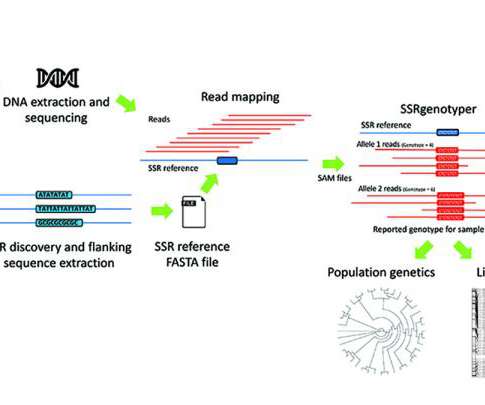
Scienmag
FEBRUARY 4, 2021
SSRgenotyper: A simple sequence repeat genotyping application for whole-genome resequencing and reduced representational sequencing projects.
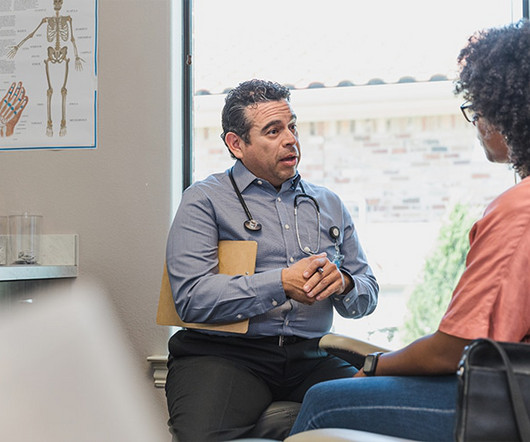
Worldwide Clinical Trials
FEBRUARY 6, 2023
When using genetic screening to identify clinical trial volunteers, a sponsor’s obligations for further testing and disclosure of results to patients and families are unclear, especially when the results have no impact on medical management. Guidance in this area is much needed. Read the full article!
This site is protected by reCAPTCHA and the Google Privacy Policy and Terms of Service apply.

Medical Xpress
APRIL 3, 2023
Work by an international research team led by Yu Xu and Michael Inouye at the Department of Public Health and Primary Care, University of Cambridge, has resulted in a unique resource for predicting multi-omics data directly from genotypes. A Research Briefing on the study is published in the same journal issue.

Pharmaceutical Technology
AUGUST 18, 2022
The US Food and Drug Administration (FDA) has granted approval for bluebird bio ’s Zynteglo (betibeglogene autotemcel, beti-cel) for the treatment of the underlying genetic cause of beta?thalassemia 0 genotypes. thalassemia in adult and paediatric patients.

Worldwide Clinical Trials
DECEMBER 12, 2022
Genetic testing provides patients with a diagnosis for their illness, helps patients and family members to understand risks of developing new diseases, and can be used to support clinical trial advancement. What are the benefits and limitations to using genetic testing? It is important to consider the type of testing performed (e.g.,

Medical Xpress
JANUARY 5, 2023
National Institutes of Health researchers have published an assessment of 13 studies that took a genotype-first approach to patient care. The study was published in the American Journal of Human Genetics. This approach contrasts with the typical phenotype-first approach to clinical research, which starts with clinical findings.

pharmaphorum
JANUARY 24, 2023
Ben Hargreaves finds that the vast amount of genetic data that exists today could help provide a faster, more targeted way of developing new drug candidates. The logical extension to this kind of approach is treating individual patients, with their individual genetic makeup.

Scienmag
APRIL 19, 2022
New Edith Cowan University (ECU) research has identified a crucial link between arthritis and the risk of serious liver disease in people with Australia’s most common genetic condition. It […].

Worldwide Clinical Trials
AUGUST 14, 2024
Historically, these indications have challenged the one-size-fits-all treatment approach due to patient variability, such as genetic differences in drug metabolism and underlying health conditions. This resistance may occur due to genetic mutations, epigenetic changes, or a tumor’s microenvironment.

BioTech 365
JUNE 14, 2021
Twist Bioscience Collaborates with Regeneron for Production of Genotyping by Sequencing Panel to Enable Diverse Genome-wide Screening Twist Bioscience Collaborates with Regeneron for Production of Genotyping by Sequencing Panel to Enable Diverse Genome-wide Screening — Population Genetics Sequencing Panel Incorporates … Continue reading (..)

Scienmag
AUGUST 25, 2020
Credit: Iliana Baums, Penn State Coral conservation efforts could get a boost from a newly developed genotyping “chip”–the first of its kind for corals.

The Pharma Data
NOVEMBER 18, 2020
Genetics Tied to Thromboembolism Risk With Inflammatory Bowel Disease. 18, 2020 — Genetic variants in some patients with inflammatory bowel disease (IBD) are associated with a significantly increased risk for developing thromboembolic disease (TED), according to a study published online Oct. Professional. WEDNESDAY, Nov.

Scienmag
JANUARY 13, 2021
Credit: Delaneau Group Thousands of genetic markers have already been robustly associated with complex human traits, such as Alzheimer’s disease, cancer, obesity, or height.

Medical Xpress
FEBRUARY 3, 2023
For their paper published in the journal Science, Lorenzo Talamanca, Cédric Gobet and Felix Naef analyzed data obtained for the Genotype-Tissue Expression project. A trio of bioengineering scientists at Ecole Polytechnique Fédérale de Lausanne has found age and gender differences in gene expression related to the circadian clock.

XTalks
NOVEMBER 10, 2020
Expeditious and accurate diagnoses are necessary for patients to access healthcare services and treatment options for rare genetic diseases. Increasing the efficiency of case analysis and interpretation is essential to providing timely care for patients with genetic diseases.
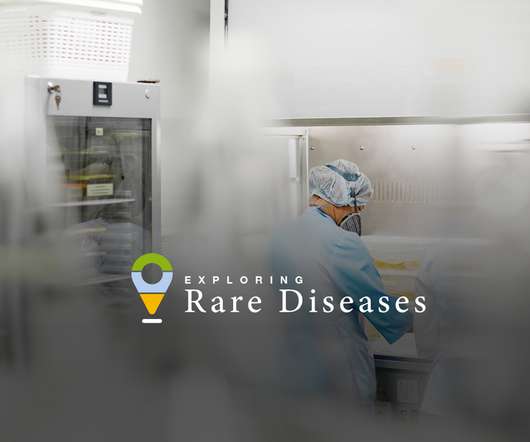
pharmaphorum
OCTOBER 9, 2020
The rare, X-linked genetic condition is characterised by short stature and facial, limb and genital abnormalities and was first described in 1970. Because Aarskog is an X-linked genetic condition affecting predominantly males, women have traditionally been considered asymptomatic carriers. No one would listen.”.
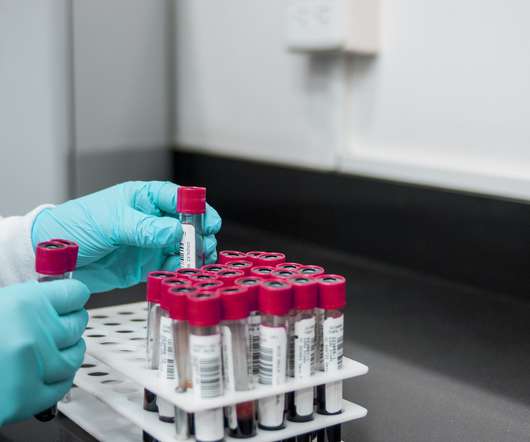
XTalks
FEBRUARY 4, 2021
Through these collaborations, cohort research dataset sharing programs allow for whole-genome sequence and genotype data to be made available for independent research. Now, if all you’ve already got is a bioresource of 20,000 people that have already been genotyped, you can choose those from that sample and focus your effort.”.

pharmaphorum
AUGUST 11, 2022
The participants undergo monitoring for genetic variations that could potentially negatively impact their reaction to therapies. The program is aiming to genotype roughly 150,000 participants over the next few years to demonstrate the impact personalised testing can have on a large scale. About the Author.
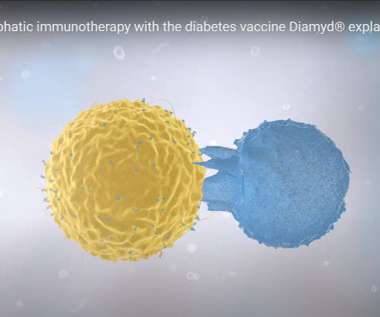
XTalks
SEPTEMBER 15, 2020
A vaccine developed by Swedish company Diamyd Medical has demonstrated significant treatment efficacy in a predefined genetic subgroup of individuals with type 1 diabetes in a Phase IIb clinical trial. Hannelius said this highlights the importance of genetics when developing therapies for type 1 diabetes.

Bioengineer
JANUARY 16, 2024
Another genetic change at the C797 residue in the ATP binding region of EGFR’s exon 20 has emerged as a key mechanism of resistance to osimertinib. However, when osimertinib is used first-line, the T790M mutation is usually absent before or after progression, reducing its significance with increased frontline use.
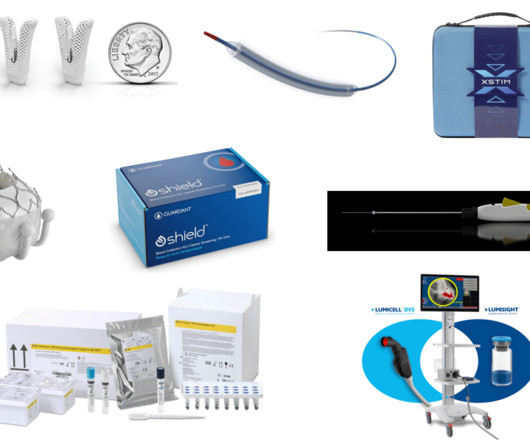
XTalks
JANUARY 21, 2025
There, plasma is separated, and tumor DNA is identified by detecting genetic mutations, methylation patterns and fragmentation signals. Using cervical or self-collected vaginal specimens, the test works with the BD Viper LT and BD COR systems to detect individual genotypes, such as HPV 16, 18 and 31, and grouped results for other types.

pharmaphorum
JANUARY 16, 2023
“In addition to living longer, the reason behind the higher female prevalence is thought to be related to the effects of menopause and the impact of the APOE4 genetic risk factor being greater in women,” said Professor Minihane. Their work specifically focused on the effect of HRT on women with the APOE4 genotype.
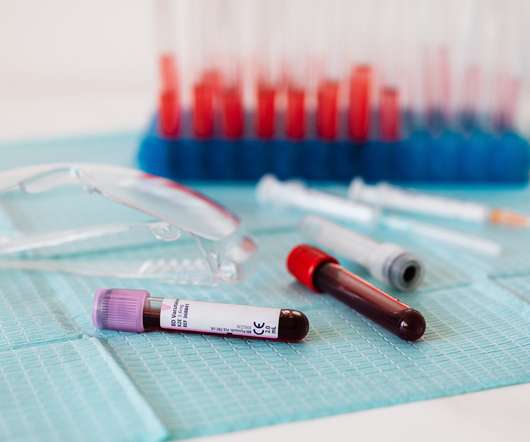
XTalks
SEPTEMBER 28, 2020
Based on the genetic biomarker(s) identified, the most effective therapy targeting the specific molecular marker can be selected. The liquid biopsy will therefore help personalize medicines for patients based on the molecular features of their disease.

Roots Analysis
AUGUST 12, 2024
These diagnostic solutions are essential for detecting and monitoring diseases, identifying genetic abnormalities, and guiding personalized treatment plans. Molecular diagnostic solutions are pivotal across various medical fields, including oncological disorders, infectious diseases, genetic testing, and personalized medicine.

Roots Analysis
APRIL 28, 2024
Factors Contributing to Kidney Diseases There are several factors which contribute to an increased risk of developing kidney diseases, including genetic causes and underlying metabolic causes ( diabetes, high blood pressure, aging and obesity ), which when combined with other factors increase the risk of developing kidney diseases.

The Pharma Data
SEPTEMBER 8, 2021
As manufacturer of custom oligonucleotides the company partnered in the development of molecular diagnostics and built a broad portfolio of diagnostic assays, in particular for inherited genetic as well as somatic mutation testing, quantitative assays for haematology and transplantation medicine.

XTalks
DECEMBER 12, 2023
Moreover, combining biofluid analytes with molecular pathology (genetic biomarkers) allows for the classification and differentiation of neurodegenerative diseases. To accurately identify these genetic factors, genotyping techniques such as Sanger sequencing, next-generation sequencing (NGS) and copy number variant analysis are used.

Roots Analysis
AUGUST 31, 2023
Quantitative real time polymerase chain reaction ( RT PCR ) and DNA microarray technologies have been successfully used to evaluate the interactions between genes and diet, which is measured in terms of changes in the genetic expression. It is worth mentioning that more than 50 genes in a human body are associated with obesity.

pharmaphorum
JANUARY 18, 2023
In 2016, scientists behind a study called the Resilience Project analysed genetic data from 589,000+ people and found 13 adults who carried genetic variants that should have resulted in serious – even deadly – childhood disease, but who were apparently healthy. Giving participants something in return.

XTalks
APRIL 15, 2021
A 2015 study published in Nature Genetics found that the availability of human genetic data made investigational drugs twice as likely to pass pivotal trials and eventually be approved. Figure 1: The use of Mendelian randomization to validate genetic drug targets. Genuity Science Drug Target Discovery Study.

XTalks
APRIL 24, 2023
Approximately 72 percent of rare diseases are genetic, and around 70 percent of rare genetic diseases emerge in childhood. One substantial obstacle is from the additional regulatory requirements of gene therapies containing genetically modified organisms (GMOs). Rare diseases can often be progressive, chronic and fatal.
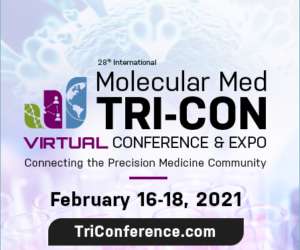
The Pharma Data
NOVEMBER 2, 2020
ONWARD is investigating Adial’s lead drug candidate, AD04, as a therapeutic agent for the treatment of Alcohol Use Disorder (AUD) in persons with certain target genotypes related to the serotonin transporter and receptor genes. Key ONWARD highlights include: All 25 planned investigative sites are active.

XTalks
MARCH 3, 2021
The US Food and Drug Administration (FDA) has granted approval to Nulibry (fosdenopterin) for reducing the risk of death associated with molybdenum cofactor deficiency type A (MoCD Type A), making it the first treatment for the ultra-rare, genetic metabolic disorder. The approval was granted to BridgeBio Pharma, Inc.

The Pharma Data
OCTOBER 9, 2021
Food and Drug Administration (FDA) Antimicrobial Drugs Advisory Committee (AMDAC) voted unanimously to recommend use of maribavir (TAK-620) for the treatment of refractory cytomegalovirus (CMV) infection and disease with genotypic resistance to ganciclovir, valganciclovir, foscarnet or cidofovir in transplant recipients.
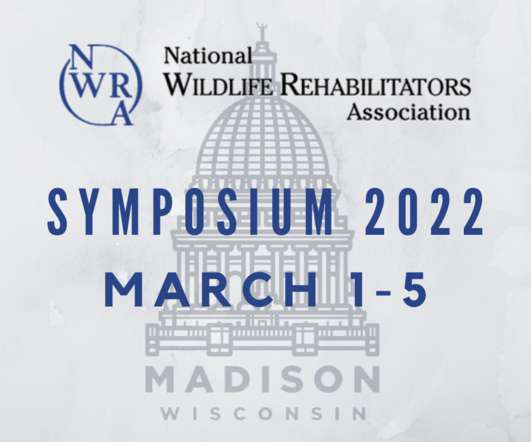
The Pharma Data
MARCH 7, 2022
The IGA results in the equivalent genotype (genetic make-up) and short-hair coat trait seen in some conventionally bred cattle, known as a “slick” coat. This is the FDA’s first low-risk determination for enforcement discretion for an IGA in an animal for food use.

The Pharma Data
NOVEMBER 18, 2020
HIV drug resistance is caused by changes in the genetic structure of HIV that affects the ability of drugs to block the replication of the virus. The recommended specimen types for HIV drug resistance genotyping are plasma or dried blood spots. Combatting antimicrobial resistance is a global. be handled as per WHO recommendations.

The Pharma Data
NOVEMBER 24, 2020
PH1 is an ultra-rare genetic disease characterized by oxalate overproduction. About Primary Hyperoxaluria Type 1 (PH1) PH1 is an ultra-rare genetic disease that affects an estimated one to three individuals per million in the United States and Europe. Oxlumo should be administered by a healthcare professional.

The Pharma Data
DECEMBER 9, 2020
Vigil’s pipeline strategy is to target these diseases by combining a high-level understanding of microglia physiology, disease genotyping, and patient phenotyping to identify specific genetic variations associated with microglial dysfunction.

The Pharma Data
DECEMBER 9, 2020
The aim of the research will be to create a TGS IVD platform by optimizing a multi-layer approach encompassing the initial sample and library preparation, state-of-the-art sequencing technologies and improved genotyping procedures. osteolabs – Germany’s osteolabs GmbH raised €1.6 million in a second financing round.
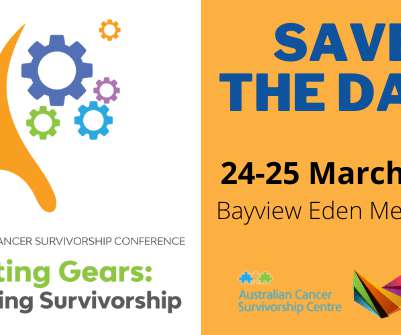
The Pharma Data
MARCH 16, 2022
As a manufacturer of custom oligonucleotides the company partnered in the development of molecular diagnostics and built a broad portfolio of diagnostic assays, in particular for inherited genetic as well as somatic mutation testing, quantitative assays for haematology and transplantation medicine.
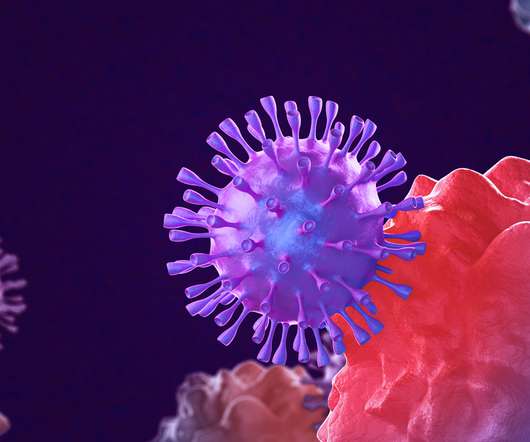
pharmaphorum
FEBRUARY 17, 2022
Researchers discovered a highly virulent variant of HIV in the Netherlands that genetic sequence analysis suggests has been circulating since the 1990s. . Ultimately, the VB variant genotype was marked by many mutations spread throughout the genome, meaning that a single genetic cause for the increased virulence cannot be determined.

Delveinsight
DECEMBER 16, 2020
As per the WHO, more than 100 types of HPV are found worldwide, out of them at least 13 known HPV genotypes can cause cancer of the cervix. Some of the key companies including Evofem Biosciences, QureTechBio, Vault Pharma, Genetic Immunity, and others are involved in developing treatments for Chlamydia. Trichomoniasis.

XTalks
MARCH 26, 2025
XTALKS WEBINAR: Biomarker Solutions for Steatotic Liver Disease: Enabling Better Insights into MASH/MASLD Biology Live and On-Demand: Thursday, May 29, 2025 , at 11am EDT (4pm BST / UK) Register for this free webinar to discover the impact of genetic markers on the severity and treatment of MASH/MASLD.
Expert insights. Personalized for you.
We have resent the email to
Are you sure you want to cancel your subscriptions?


Let's personalize your content